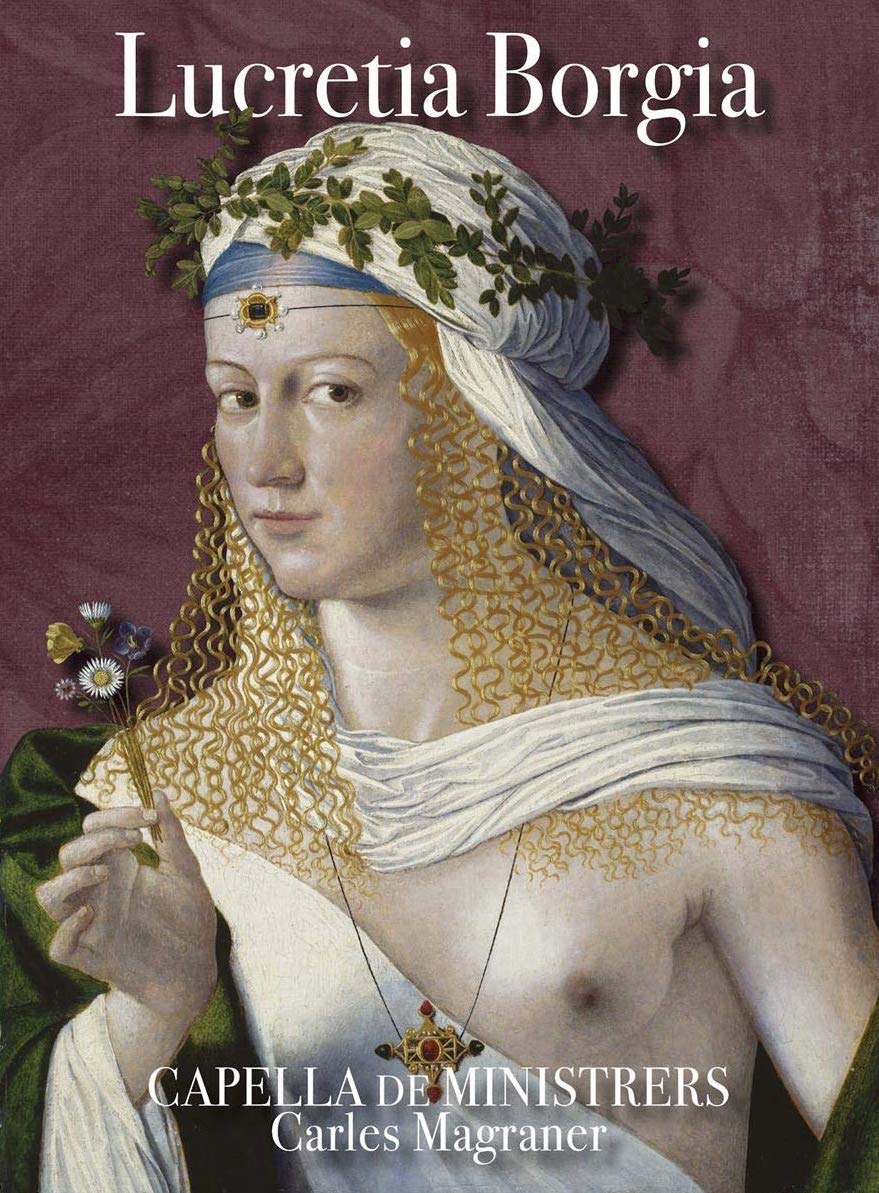A blend of history, myth and legend
Capella de Ministrers, Carles Magraner
66:39
CdM1946
Capella de Ministrers (“Minstrels”) is a Spanish ensemble consisting of singers and instrumentalists. It was founded in 1987 by Carles Magraner, the musicologist from Valencia who is still its director. While its focus is on mediaeval Spanish music, on this disc they throw their net wider, towards Italy of the late fifteenth and early sixteenth century. The repertory reflects what one must reluctantly succumb to describe as the life and loves of Lucretia Borgia (1480-1519). She was the daughter of Rodrigo de Borja, subsequently Borgia, a Spaniard who was already a cardinal, and who, in 1492, was elected Pope Alexander VI (1431-1503). Accounts of the lives of both him and his daughter – sordid or spicy according to one’s outlook – are easily accessible, and the contents of this disc, and the accompanying booklet, rightly concentrate upon the musical background to Lucretia’s tumultuous life. Seemingly she was enthusiastic about dancing, and therefore many of the 21 tracks reflect this. Composers represented range from the most famous, such as Josquin, Arcadelt and Isaac, and the significant, such as Tromboncino, Festa and Agricola, to the shadowy Niccolo (composer of Senza te alta regina, the most haunting item on this disc, well chosen to conclude it; an identification of the composer is put forward in the booklet) and the ubiquitous “Anonimo”. The ensemble consists of four singers, of whom the soprano Elia Casanova takes the majority of the solo work; her animated mien in the booklet’s photographs is reflected in her fine performances, with a voice and delivery which are a joy throughout the programme. The five instrumentalists play percussion, harp, flutes, vihuelas and Renaissance guitar. As a vocal ensemble, the singers create a grainy but well-blended sound. The instrumentalists improvise some of their material, and while this might not be to the taste or preference of every listener, their performances are stylish and musicianly, whether accompanying one or more singers, or playing purely instrumental pieces. A few tracks wander into the realm of the mediaeval equivalent of lift music, but the performances, some pensive, others energetic, are never less than engaging and committed. To adapt a modern expression, and not in any derogatory sense, people who like this sort of thing will like this sort of thing.
Richard Turbet
